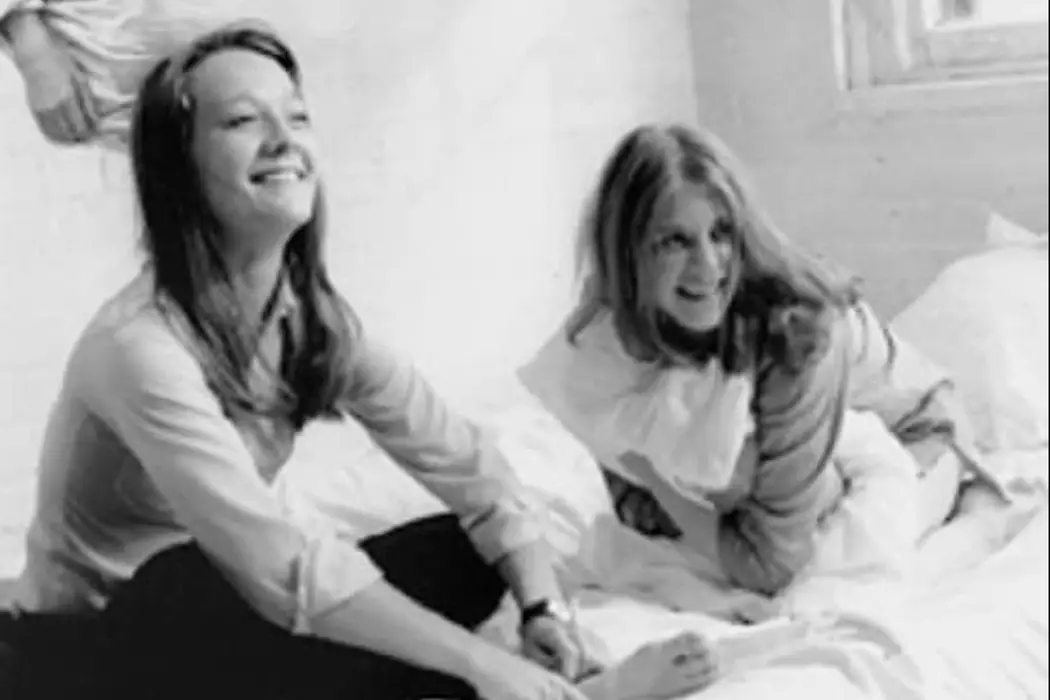DREAM LIFE: A Quebecois Classic Ripe For Rediscovery

Lee Jutton has directed short films starring a killer toaster,…
Mireille Dansereau’s Dream Life (La vie rêvée) was touted as the first narrative fiction feature film from Quebec to be directed by a woman when it was released in 1972. Yet despite holding this lofty position in Canadian film history, it has been difficult to find and watch since its original release…until now. Newly restored in 2K from the original reversal Super 16 mm elements by Elephant – mémoire du cinema Québécois in honor of the film’s 50th anniversary, Dream Life is a lush snapshot of 1970s Montreal as seen through the eyes of two twentysomethings best friends, colleagues at a local production company who spend their free time daydreaming about what else life and love may have to offer.
New Wave Meets Second Wave
On her first day at work at a Montreal production company, Isabelle (Liliane Lemaître-Auger) meets Virginie (Véronique Le Flaguais), and almost immediately, the two young women become inseparable. Virginie is an artist whose collage-style works critique the images of bourgeois perfection in the media and comment on the consumerism and sexism in society; she works at the production company as an animator in order to pay the bills, but finds little fulfillment in that work. Isabelle isn’t happy with her job either, but she’s not sure what else she can do. She once wanted to be a writer, but now worries that vocation is too old-fashioned: “People don’t read books anymore.”

Isabelle harbors an obsessive, unrequited love for an older, married man named Jean-Jacques (Jean-François Guité), and soon, due to her influence, Virginie does too. The two of them fantasize about a life of travel and leisure with an idealized Jean-Jacques as their guide; they also plan for him to father the baby that the two young women would like to raise together, traditional nuclear family be damned.
Needless to say, real life very rarely pans out the same way as one’s fantasies. But amidst the disillusion and disappointment, there are also plenty of exhilarating moments—including picnicking nude in a cemetery, picking political fights with family members, and attempting to outdrive a car full of catcallers in the next lane.
No Plot, Just Vibes
Dream Life is stylistically similar to many of the films of the French New Wave; one is particularly reminded of Agnes Varda’s iconic portrait of female friendship and feminist struggle, One Sings, the Other Doesn’t, as well as Jean-Luc Godard’s anarchic fantasy of bourgeois rebellion, Pierrot Le Fou. Yet Dansereau’s film stands on its own two feet as an important entry in New Wave cinema despite bearing the substantial weight of these better-known influences.

Dream Life eschews anything approaching a traditional plot structure, choosing instead to focus on capturing a very specific time and place and how it shapes the lives of its characters in the most aesthetically pleasing way possible. The grainy 16mm cinematography makes the film often feel like a home movie chronicling the misadventures of two intelligent, funny young women that you’ll wish were your friends too, while the editing is reminiscent of Virginie’s artwork, collage-like and full of sudden cuts between reality and fantasy as the women’s dream lives encroach upon their real ones. It’s no surprise that editor Danielle Gagné won Best Editing at the 24th Canadian Film Awards in 1972.
As the two friends at the center of the film, Lemaître-Auger and Le Flaguais are delightful. Their friendship lacks the toxic competitiveness that one often sees in cinematic depictions of women’s relationships; they support each other and question each other and urge each other on to greatness, whatever that may be. Seeing female friends like this on-screen feels revolutionary today, let alone in 1972; their intimate discussions on love, work, and family run the gamut from hilarious to heartbreaking and remain relevant fifty years later.
Conclusion:
For the last few decades, Dansereau has been toting Dream Life around to women’s studies classes in order for it to be seen. Hopefully, this lovely new restoration will help the film and its pioneering director receive the appreciation they deserve.
What do you think? What other hidden gems of feminist cinema would you like to see rediscovered and restored? Share your thoughts in the comments below.
Dream Life begins a one-week theatrical run at Metrograph in New York on November 4, 2022.
Watch Dream Life
Does content like this matter to you?
Become a Member and support film journalism. Unlock access to all of Film Inquiry`s great articles. Join a community of like-minded readers who are passionate about cinema - get access to our private members Network, give back to independent filmmakers, and more.
Lee Jutton has directed short films starring a killer toaster, a killer Christmas tree, and a not-killer leopard. Her writing has appeared in publications such as Film School Rejects, Bitch: A Feminist Response to Pop Culture, Bitch Flicks, TV Fanatic, and Just Press Play. When not watching, making, or writing about films, she can usually be found on Twitter obsessing over soccer, BTS, and her cat.













